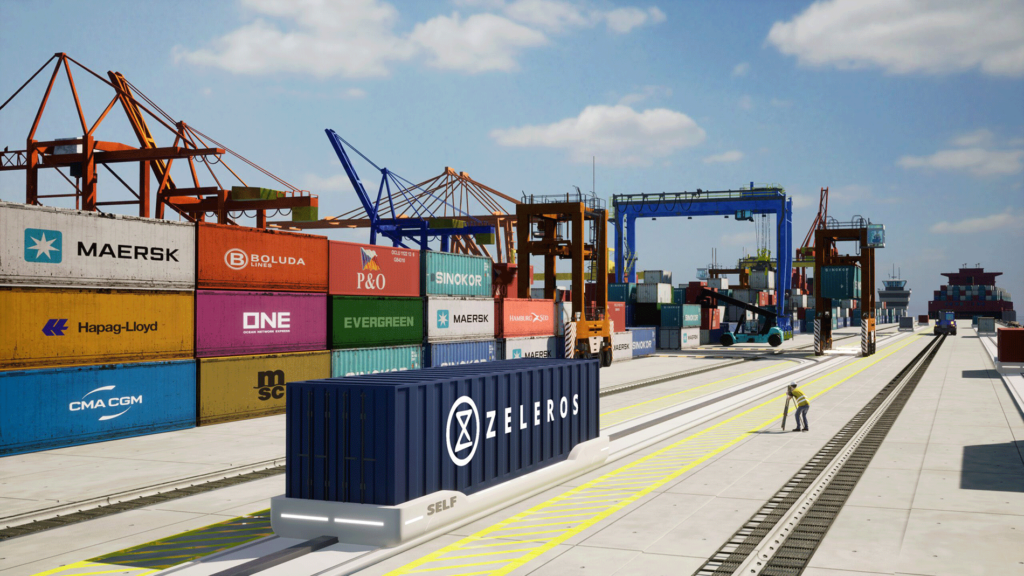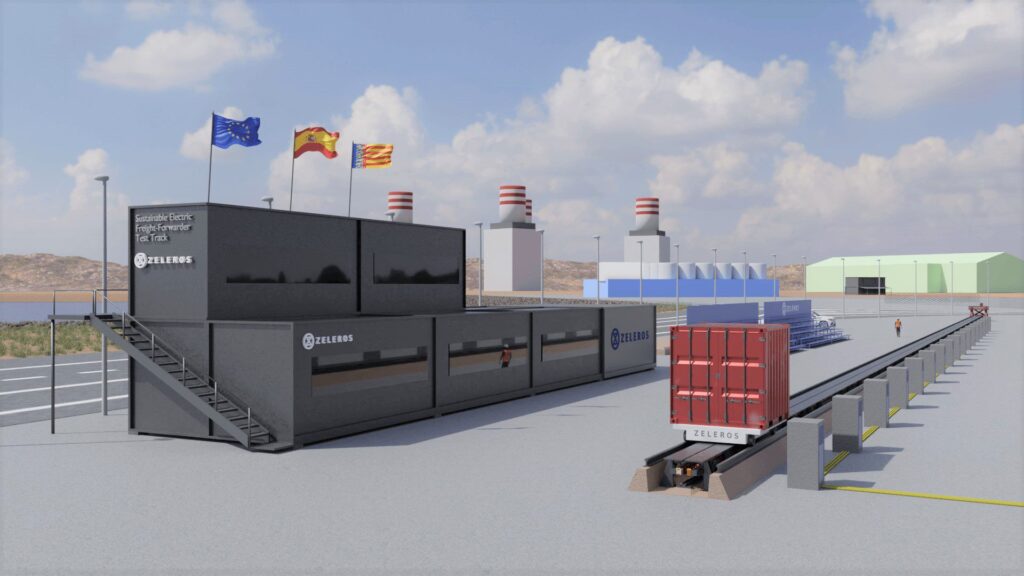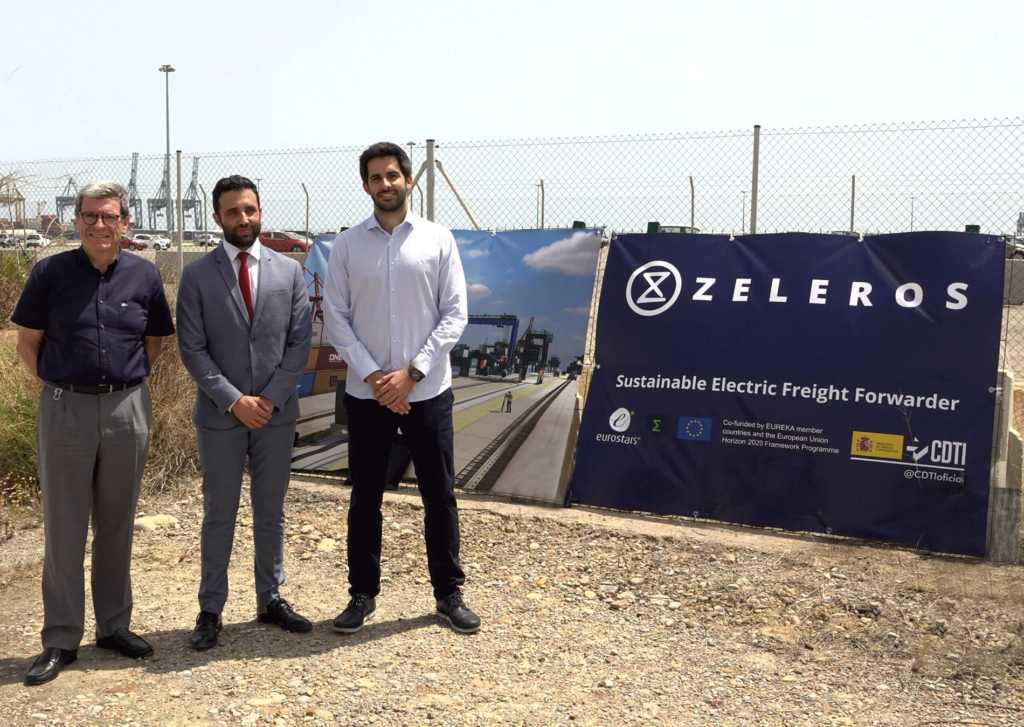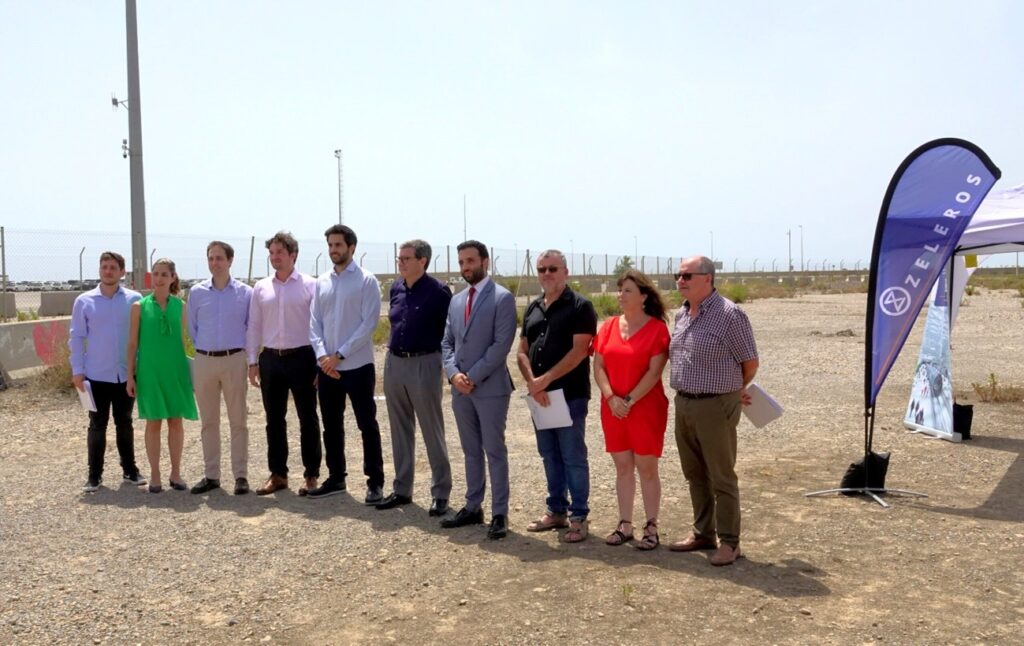- Zeleros lays the first stone of the test track for the SELF-Booster, a pilot project that will demonstrate Zeleros’ hyperloop technology and its application to automated and fully electric container handling.
- The project will become fully operational by end 2022 and is set to accelerate Zeleros’ hyperloop development, while launching a new product, SELF, that is aligned with the growing needs to optimize and decarbonize freight logistics in ports and hinterlands.
Valencia, Spain. 5th July, 2022.
ZELEROS, the European company building the scalable hyperloop, has laid today the first stone of the SELF-Booster, a pilot project conceived to both demonstrate in pre-commercial conditions one of Zeleros’ relevant technologies for hyperloop -the linear motor- and to propose an autonomous fully-electric system to optimize the flow of containers within ports: the SELF system.
Zeleros, the European pioneer in the hyperloop arena, has raised strong public and private industrial support to accelerate the development of the key technologies that will make hyperloop a reality to connect cities at 1000km/h with zero direct emissions.
One of Zeleros’ key technologies is the linear motor, which is like a rotating motor but unfolded. Powered by electricity and thanks to electromagnetic fields, it can move objects with high accuracy at any designed speed. Zeleros has been lab-testing for years a special type of it called the “switched reluctance linear motor” with the Spanish research center CIEMAT, which has proven to be an optimal solution for hyperloop to reach ultra-high-speeds, but also for applications at lower speeds and heavy loads, such as Zeleros’ SELF.
SELF (Sustainable Electric Freight-forwarder) is the product developed by Zeleros that enables standard intermodal containers to be moved in a faster and sustainable way within ports with the linear motor as a backbone. Fully operational, the SELF platforms would allow decongesting loading and unloading areas in ports by efficiently moving containers between terminals or nearby storage areas (a.k.a. hinterlands) with full grade of automation and powered by electricity. The infrastructure is designed to be seamlessly integrated in the terminals, operating together with other port handling machines such as straddle carriers, reach stackers or gantry cranes, thus improving the operation of freight flows in ports and contributing to the optimization of supply chain logistics.

This system will be demonstrated in pre-commercial conditions at the SELF-Booster pilot project, which will become fully operational by 2022. It will consist of a test track that will automatically move through a fully electric linear motor a vehicle from 0 up to 120 km/h and back to stop in 100 meters.

“The launch of the SELF-Booster pilot is a historic moment in our development programme, as we are getting out of the laboratory and testing in a space that is a step closer to reality” David Pistoni, CEO and Co-Founder at Zeleros.
Indeed, the SELF booster pilot gathers knowledge from industrial actors such as ACCIONA and ArcelorMittal, research institutions like CIEMAT, partners like Magneto and is also supported by the European Union through the Horizon 2020 Programme and the Spanish Ministry of Science and Innovation’s Centre for the Development of Industrial Technology (CDTI).
Zeleros’ SELF project ultimately conveys the global priority of accelerating the shift towards sustainable and smart mobility, proving hyperloop technology and in parallel developing solutions to decarbonize and optimize freight transport solutions in ports.
For further inquiries about SELF or other Zeleros hyperloop related projects please contact press@zeleros.com




